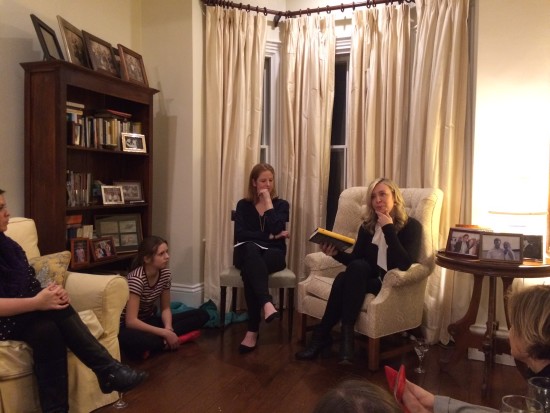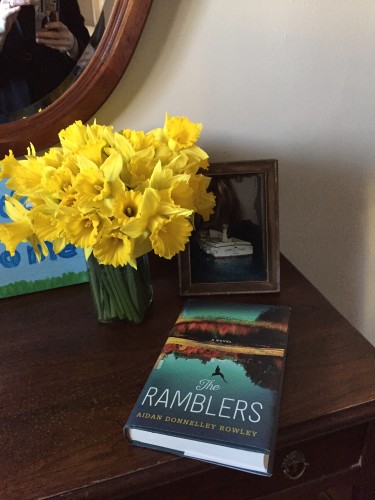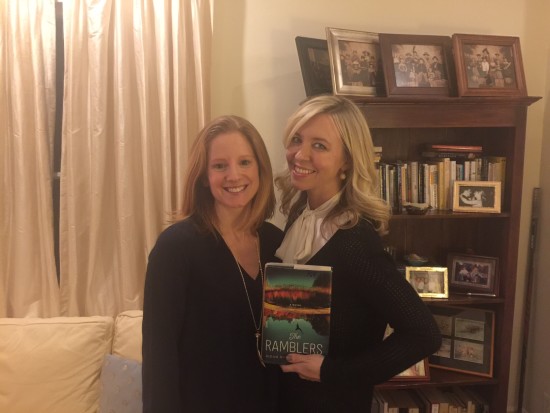I read a lot this summer. At the outset of the season, as I wrote my mid-year reading review, I realized I hadn’t read much fiction this year. So I swore to myself that the summer months would hold a lot of novels. And they did. I would love to hear what you’ve been reading, too!
Lab Girl, Hope Jahren – I loved this book, which is suffused with the wonder of the natural world. Jahren’s beautifully-written story is a love letter to science.
Modern Lovers, Emma Straub – Straub’s book is entertaining, wise, and truly has its finger on the pulse of what it means to be in midlife. I related to an uncomfortable degree.
The Spiritual Life of Children, Robert Coles – I’ve long wanted to read this book and I finally did. A thoughtful perspective on the deep and rich interior lives that children often have. My favorite passage is here.
Wilde Lake, Laura Lippman – Taut, page-turning mystery, with a complicated female protagonist to boot. I’m in.
There and Then: The Travel Writing of James Salter, James Salter – Essays by one of my very favorite writers about the traveling. Beautiful prose, short snippets, you can see parts of the world in these pages. My favorite passage is here.
What Alice Forgot, Lianne Moriarty – An entertaining confection that raises a big question: what do we take for granted over time, and what do we need to remember?
The Weight of Water, Anita Shreve – I don’t know why I’ve not read this before, but I’m glad I did. Womanhood, relationships, the ocean – so much story in here, and so gorgeously written. My favorite passage will go up next week.
Before the Fall, Noah Hawley – Gripping from page one. I couldn’t put this down. I found the ending a little unsatisfying, I’ll be honest, but this is an excellent, fast-paced story.
Days of Awe, Lauren Fox – A recommendation from my sister, and she’s never wrong. A lovely book about friendship, marriage, motherhood, and adulthood.
The Atomic Weight of Love, Elizabeth Church – A recommendation from Katie, who’s also never wrong! I adored this book about being a woman in the mid 20th century, subjectivity, science, birds, love, and identity.
The House of Secrets, Brad Meltzer – My love of thrillers is well-documented, and I tend to read everything Meltzer writes. This book, heavy on the Benedict Arnold history, was very entertaining.
It’s Okay to Laugh: (Crying Is Cool Too), Nora McInerny Purmort – That this memoir is both a tear-jerker and a laugh-out-loud page-turner is a testament to the lovely writing and the irrepressible spirit of the writer. Highly recommend.
The Singles Game, Lauren Weisberger – Fun, light, entertaining. I enjoyed this look inside the tennis circuit.
Heroes of the Frontier, Dave Eggers – I loved this book, which managed to be both light and deeply wise. Despite the way the story careens all over the place (literally and figuratively), it powerfully describes the love between a mother and her children. I rarely read the NYT Book Review, but I did about this book, and these lines (by Barbara Kingsolver) have stayed with me: “The heroes of this frontier are Ana and Paul, a dynamic duo who command us to pay attention to the objects we find in our path, and stop pretending we already know the drill … she (Josie) sees them learning to take what a human animal really needs, divining the crucial difference between genuine dangers and manufactured ones. She is learning to be the mother her life demands, rearing the sort of brave humans the future will require.”
The Girls, Emma Cline – As wonderful as I’d been told. Cline’s story is feral and fecund, powerfully evoking the vulnerability of teenage girls and their deep desire to be a part of something bigger than themselves. I could not put this book down.
The Excellent Lombards, Jane Hamilton – A wonderful, bittersweet evocation of adolescence. This book is an elegy for a way of life that’s receding (farming) as well as for the innocence of childhood. Tear-jerking, thoughtful, and lovely.
Pastrix: The Cranky, Beautiful Faith of a Sinner & Saint, Nadia Bolz-Weber – I loved Nadia’s wry humor and her clear-eyed ability to see the holy in even the most winding paths. This is a beautiful, powerful book.
Where’d You Go, Bernadette, Maria Semple – I laughed out loud while reading this. Often. Another book I’m not sure why I waited so long on. Hilarious and tinged with thought-provoking commentary on motherhood, identity, and conforming.
Truly Madly Guilty, Lianne Moriarty – Another successful page-turner by Moriarty. Like all of her books this one circles around an event which is a mystery until revealed. It is more tragic and less salacious than I expected, but the outcome is heartening, the message optimistic. Entertaining.
Siracusa, Delia Ephron – Riveting writing on an unsettling topic. Europe, midlife, marriage, parenthood, trust and the breaking of it … there is so much in this novel.
Sweetbitter, Stephanie Danler – I love the writer’s voice and her beautiful, heartbreaking, raw depiction of young adulthood in New York. I never lived in New York and I never waited tables, but even so, I found this book almost unputdownable. A gorgeou way to close out the summer.
What have you read this summer that you recommend? I want to hear!
Disclosure: these are affiliate links



